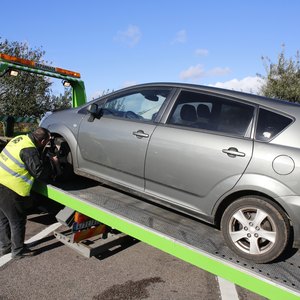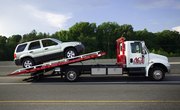
If you've missed a car payment, you've got good cause to start getting nervous. While laws on repossession vary from state to state, most can be harsh if you haven't made your car payments. A repossession can hurt your credit for seven years, in addition to leaving you stranded without warning. If possible, you're better off getting ahead of the repo man by notifying the lender as soon as possible and trying to work out a payment plan.
Tips
If you miss a payment, the amount of time you have before your car is repossessed is up to the lender you received your car from. When financing a vehicle be sure to ask when your car loan is considered to be in default.
Defaulting on Your Car Loan
Double-check your car loan because it defines when you are in default. While some car loans define default as missing a single payment, others might define it as missing two payments. If the bank believes you are a flight risk, you might have as little as 10 days after defaulting on your loan. In many states, laws are in place to protect the auto dealer, allowing them to safeguard their interests by repossessing after a payment isn't made. In other states, laws seek to also protect the consumer. California law, for instance, stipulates that the seller must give notice in advance and the buyer has a 10-day redemption period.
Next Steps
Many lenders are motivated to work out payment plans because they don't want to sell the car for its depreciated value. Having you pay the amount due without having to repossess the car is in everyone's best interest. As soon as you realize you won't be able to make a payment, contact your lender and let them know about your dilemma. They'll likely work out a lower payment that you can make to avoid you going into default. If your situation is temporary, you may be able to skip a payment or two and have the time period added to the end of your loan. This could be all you need to get back on your feet again.
Final Steps Before Repossession
If you cannot pay the amount due and the car dealer is not amenable to negotiate, consider removing any valuables from the car and any improvements you have made, such as a bicycle rack or stereo system. Consider alternative forms of transportation you can use if your car is suddenly taken. While most lenders may not notify you before they repossess your car, many states require that the lender notify you before they sell it. This gives you one last chance to pay the balance due and other costs associated with repossession.
References
Writer Bio
Shelly Morgan has been writing and editing for over 25 years for various medical and scientific publications. Although she began her professional career in pharmacological research, Morgan turned to patent law where she specialized in prosecuting patents for medical devices. She also writes about renal disease and hypertension for several nonprofits aimed at educating and supporting kidney patients.

